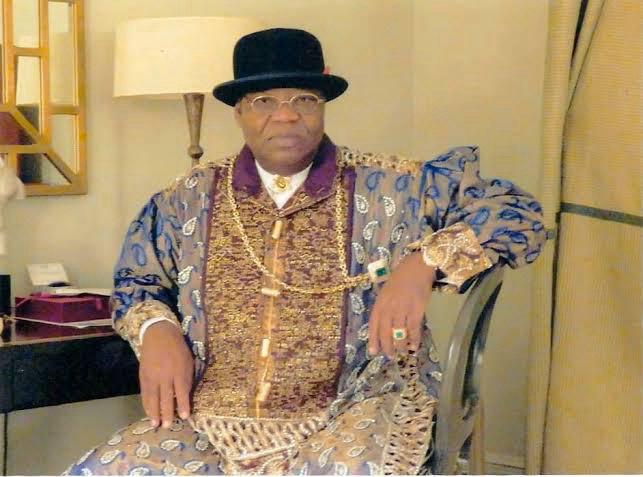An Ijaw environmental activist, Dr Bolouowei Kurokeme, has called on the Federal Government and stakeholders in the oil and gas industry to urgently revisit and recognize the contributions of former Minister of Petroleum Resources, Chief Dan Etete, describing him as the architect of Nigeria’s oil sovereignty and a champion of indigenous participation in the energy sector.
Kurokeme, who disclosed this during an interview with journalists on Sunday, also highlighted Etete’s enduring legacy, especially his bold policies in the 1990s that laid the groundwork for Nigeria’s present gains in local content development.
According to him, the foresight of Etete in pioneering local content is the foundation for the recent dynamic Nigeria First Policy by President Bola Tinubu.
He said, “I wish to state with high sense of responsibility that Chief Dan Atete did not have direct interest in OPL 245. It was the directors of Malabu that appointed him as a consultant to the oil firm
“For the record, Etete was the one that set up Marginal Field Decree of 1998 for the benefit of all Nigerians to be included in the oil and gas industry.
“Please note that the foresight of Etete in pioneering local content is the foundation for the recent dynamic Nigeria First Policy by President Bola Tinubu that places emphasis on made in Nigeria goods.
“By the end of 2024, Nigeria achieved an unprecedented 56 percent local content participation in oil and gas, as reported by the NCDMB. But we must never forget that this journey started with the visionary leadership of Chief Etete.
“He was a pioneer who dared to challenge foreign monopolies and empowered Nigerian entrepreneurs at a time when it was unpopular, even dangerous to do so.”
Kurokeme also noted that Etete’s tenure from 1995 to 1998, under the regime of late General Sani Abacha, coincided with a politically volatile era marked by international scrutiny and deep-rooted foreign dominance over Nigeria’s oil resources.
He added that despite the turbulent environment, Etete championed the allocation of oil blocks to Nigerian-owned companies—including the now-famous OPL 245 to Malabu Oil and Gas—in a bid to promote economic sovereignty.
He said, These allocations were not arbitrary handouts. They were strategic interventions aimed at transferring wealth, building local capacity and giving Nigerians a direct stake in their oil wealth.”
Kurokeme further defended the former minister’s controversial involvement in the OPL 245 saga, noting that since Etete did not have any interest in OPL 245, no court—domestic or international—has found him guilty of corruption.
He also cited court rulings in Italy and Nigeria affirming the legality of Malabu’s claim, stating that Etete’s actions were wrongly criminalized because they challenged entrenched corporate interests.
He said, “The Malabu case is a classic example of how nationalist efforts in the Global South are vilified when they threaten the interests of international capital. Etete wasn’t perfect, but he was a patriot who wanted Nigerians—especially the Niger Delta people—to benefit directly from their God-given resources.”
Born in the Ijaw heartland, Etete, Kurokeme recalled, had a strong affinity with the struggles of oil-bearing communities and advocated for greater resource control, environmental remediation, and Niger Delta development long before such issues became mainstream.
Kurokeme also disclosed that companies such as Seplat, Aiteo, Sahara Energy, and Oando owe their rise to the indigenous oil sector reforms initiated during Etete’s time and emphasized the philosophical link between Etete’s policies and the 2010 Nigerian Oil and Gas Industry Content Development Act, which formalized local content obligations.
“Today’s gains are the fruits of trees he planted decades ago. He deserves credit, not condemnation,” Kurokeme declared.
He also described Chief Etete, who recently turned 80, as a “misunderstood reformer” whose role has been deliberately downplayed in Nigeria’s economic history.
Kurokeme said, Though one may not always agree with his political leaning, you cannot but honour his far above petty politicking disposition. He is a typical example of politics without bitterness, and never the one to court the vagaries of double speak in the often volatile terrain of Nigeria’s political discourse.”
Kurokeme also urged the Federal Government to formally recognize Chief Dan Etete’s contributions and initiate national conversations to restore what he termed a “distorted legacy.”

